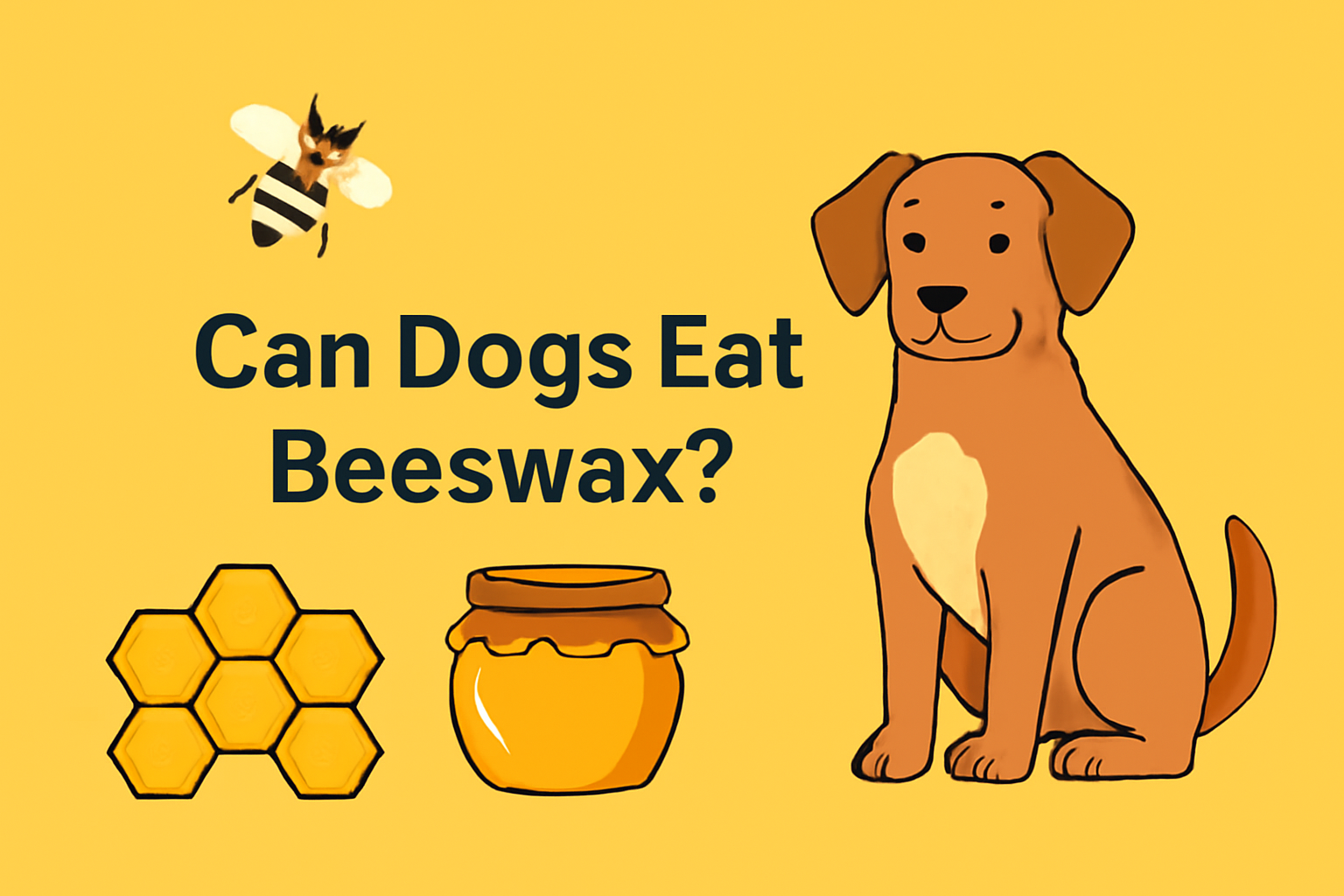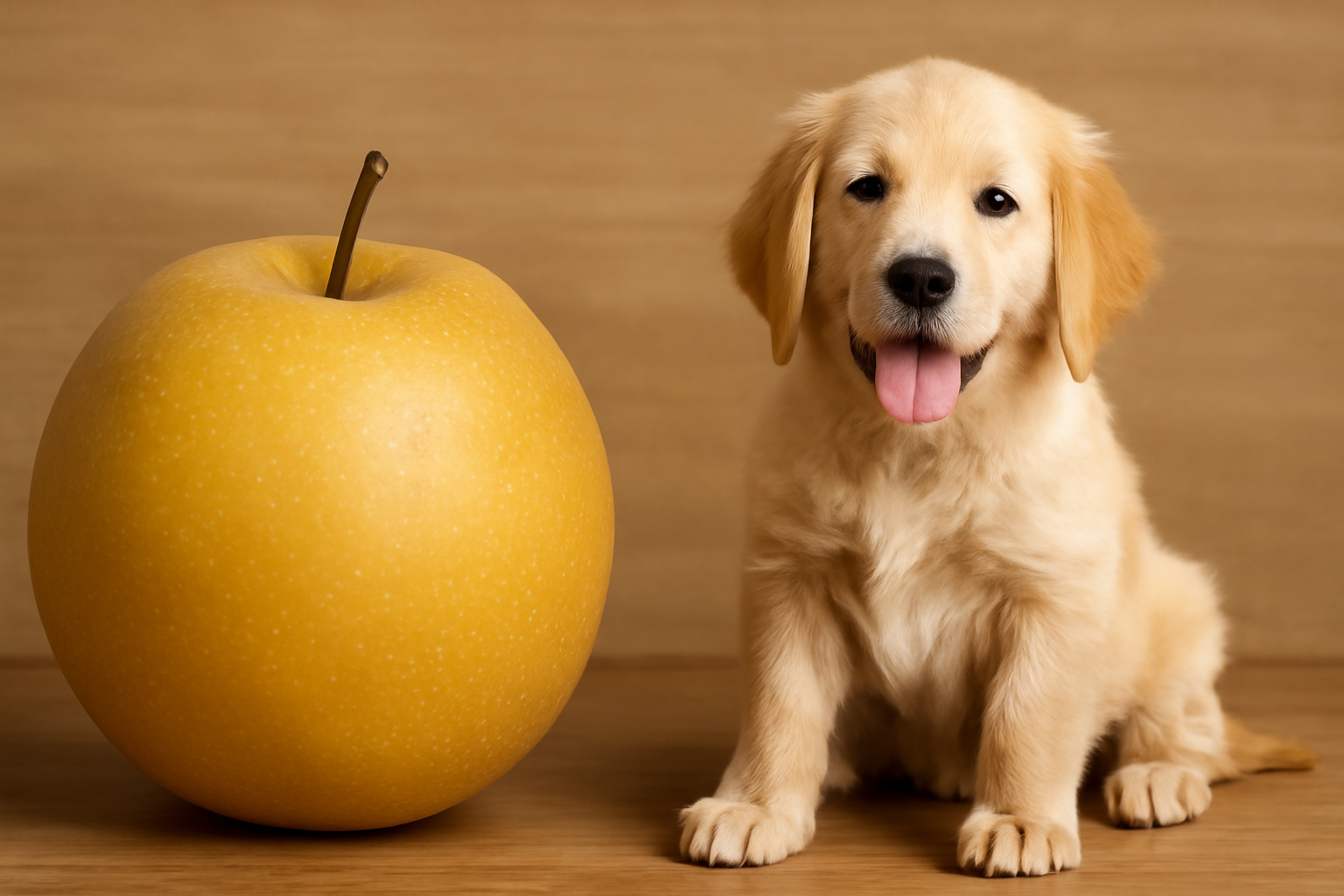Can Dogs Eat Guar Gum? 🐕🌱
As pet owners, we always want the best for our furry companions. We carefully choose their food, check for the right ingredients, and make sure they stay healthy. But sometimes, we find ourselves wondering about the ingredients in the food we give them. One ingredient that often appears in processed dog foods is guar gum. So, the big question is: Can dogs eat guar gum? 🤔
In this article, we will take a closer look at guar gum—what it is, how it affects dogs, whether it’s safe, and what precautions you should take when feeding it to your dog. Let’s dive into everything you need to know!
What is Guar Gum? 🌱
Guar gum is a natural food additive that comes from the seeds of the guar bean plant (Cyamopsis tetragonoloba). It is commonly used in both human and pet foods as a thickening agent and emulsifier, meaning it helps keep liquids mixed together. Guar gum is often used in sauces, soups, and salad dressings, and it can also be found in some wet dog food or dog treats.
But what makes guar gum so popular? Well, it’s an inexpensive, fiber-rich ingredient that helps improve the texture of food. This is why it is used in everything from dog food to ice cream! But, is it safe for dogs? Let’s find out. 🧐
How Does Guar Gum Affect Dogs? 🐾
While guar gum is generally considered safe for dogs in small amounts, it’s important to understand its benefits and potential risks. Dogs, like humans, have different nutritional needs, and what is safe for one may not be safe for the other.
Benefits of Guar Gum for Dogs 🌟
- Digestive Health 🦠
Guar gum is a soluble fiber, which means it dissolves in water and can help regulate your dog’s digestive system. Fiber can aid in digestion by adding bulk to stool, helping with regular bowel movements, and reducing constipation. For dogs with mild digestive issues, guar gum may help promote healthier digestion. - Helps with Hydration 💧
Guar gum is often used in wet dog food because it helps retain moisture. This is especially helpful for dogs who have trouble staying hydrated, such as those with kidney issues or older dogs. The moisture content helps make the food more palatable and easier to chew for dogs with dental issues. - Low Risk of Toxicity 🚫
Guar gum is generally recognized as safe (GRAS) by regulatory bodies like the FDA. This means that, in small amounts, it doesn’t pose significant harm to your dog. Unlike some other artificial additives, it doesn’t have a high risk of toxicity. However, too much of anything can cause issues, so it’s important to be cautious.
Risks of Guar Gum for Dogs ⚠️
- Digestive Upset 😖
If your dog consumes too much guar gum, it could cause gastrointestinal distress. The fiber content in guar gum can cause gas, bloating, or diarrhea in some dogs. If a dog has a sensitive stomach, introducing guar gum too quickly or in large amounts could make things worse. - Choking Hazard ☠️
While guar gum itself isn’t typically dangerous, if your dog eats a large quantity of food containing guar gum, it can absorb water and form a gel-like substance. This could create a choking hazard, especially for small dogs. Always be mindful of the consistency of the food you’re offering. - Excess Fiber 🌾
If a dog consumes too much fiber, it can interfere with the absorption of essential nutrients. Excessive fiber can cause a reduction in nutrient absorption, leading to malnutrition or weight loss over time. If your dog is eating too much food containing guar gum, they might not be getting enough protein or other important nutrients.
Can Guar Gum Help My Dog’s Digestion? 🐶
Guar gum may help with digestion in small amounts, especially if your dog is dealing with occasional constipation. It can add bulk to the stool and promote regular bowel movements. However, too much fiber can cause the opposite effect and lead to diarrhea or bloating. It’s always important to use fiber in moderation.
If your dog has consistent digestive issues, it’s always best to consult your veterinarian. They can recommend a proper diet or even supplements that are more suited to your dog’s digestive health. Guar gum should never be used as a primary treatment for digestive issues.
How Much Guar Gum Is Safe for Dogs? 🐕
Moderation is key when it comes to guar gum. Since it’s typically used in processed or wet dog food, your dog is likely consuming small amounts of it already. Occasional treats that contain guar gum should not cause significant problems, but feeding it to your dog in large quantities or regularly might lead to digestive upset or other health issues.
As with any food additive, it’s important to be aware of how much your dog is consuming. Monitor your dog’s health, and if they show signs of digestive distress like vomiting, diarrhea, or excessive gas, you might want to reconsider giving them food containing guar gum.
Alternatives to Guar Gum in Dog Food 🍽️
If you’re concerned about guar gum in your dog’s food, there are alternatives that can help improve the texture or moisture content of food without using guar gum. Some of these alternatives include:
- Pectin 🍊: A natural thickener derived from fruits, commonly used in homemade dog treats.
- Carob Gum 🌰: Derived from the carob tree, it is a natural ingredient used to thicken food.
- Arrowroot Powder 🌿: A starchy powder that can be used as a thickening agent and is safe for dogs in small amounts.
- Natural Ingredients 🥕🍗: Whole foods like sweet potatoes, carrots, or chicken can help make food moist and more appealing to your dog.
If you prefer to make homemade dog food, these natural ingredients can help provide the necessary consistency and nutrition for your dog.
Nutritional Value of Guar Gum in Dog Food 🥄
Since guar gum is mainly used as a thickening and stabilizing agent, it doesn’t contribute significant nutrients in large quantities. However, it can be used to increase fiber content in food, which plays a role in digestion. Here’s a quick breakdown of the nutritional profile of guar gum:
| Nutrient | Amount per 100g | Benefit to Dogs |
|---|---|---|
| Calories | 400 kcal | Provides energy, though it’s minimal in typical use |
| Fiber | 80g | Adds bulk to stool, helps with digestion (in moderation) |
| Fat | 1g | Very low fat content |
| Carbohydrates | 94g | Carbs provide energy but can cause weight gain if excessive |
| Protein | 0.5g | Very low in protein, so not a primary nutrient source |
| Potassium | 410mg | Supports heart function and fluid balance |
FAQ: Everything You Need to Know About Guar Gum for Dogs ❓
1. Is guar gum safe for dogs?
Yes, guar gum is generally safe for dogs when consumed in small amounts. It’s often used in wet dog food to improve texture and moisture retention. However, too much fiber can cause digestive issues.
2. Can guar gum cause digestive problems for my dog?
Yes, too much guar gum can cause digestive upset such as diarrhea, bloating, or constipation. Moderation is key when it comes to feeding your dog foods with guar gum.
3. Can I feed my dog food with guar gum every day?
It’s okay for your dog to eat food with guar gum occasionally. However, it should not be a daily part of their diet, especially if the food is high in fiber. Check with your vet if you have concerns about guar gum in your dog’s diet.
4. How do I know if my dog is allergic to guar gum?
Allergic reactions to guar gum are rare, but if your dog shows signs like itching, hives, or gastrointestinal upset after eating food containing guar gum, you should stop feeding it to them and consult a veterinarian.
5. Are there any natural alternatives to guar gum?
Yes! Natural alternatives include pectin, carob gum, and arrowroot powder. You can also choose whole foods that provide moisture and texture without additives.
6. Should I make my own dog food without guar gum?
If you prefer to avoid additives, you can make your own dog food using fresh ingredients like chicken, beef, carrots, and sweet potatoes. This will ensure your dog gets a healthy, balanced diet without unnecessary additives.
Conclusion: Is Guar Gum Safe for Dogs? 🐾
In conclusion, guar gum is generally safe for dogs in small amounts. It can offer some benefits, like promoting digestive health and adding moisture to wet food. However, too much guar gum can cause digestive issues, so moderation is important. Always read labels and monitor your dog for any signs of discomfort.
If you’re concerned about guar gum in your dog’s diet, consider natural alternatives or homemade meals that avoid additives. If your dog has any health issues or dietary concerns, always consult with your veterinarian to ensure they are getting the best nutrition possible.
Your dog’s health is essential, and making informed decisions about their diet can keep them happy and healthy for years to come! 🐕💖
I hope this article helps you understand guar gum and its effects on your dog! Feel free to reach out if you have any more questions. 😊🐾



